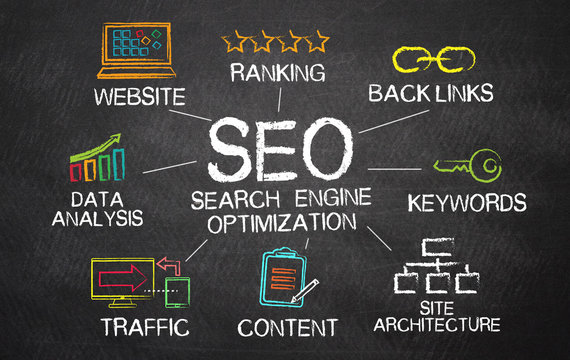Introduction
Understanding the distinction between on-page and off-page SEO is fundamental to developing a comprehensive search engine optimization strategy. Both elements play crucial roles in improving website visibility and driving organic traffic.GeeksforGeeks
On-Page SEO: Optimizing Internal Elements
On-page SEO involves optimizing elements within your website to improve search engine rankings. Key components include:woorank.com
-
Title Tags and Meta Descriptions: Crafting compelling and keyword-rich titles and descriptions to enhance click-through rates.
-
Header Tags (H1, H2, H3): Organizing content with appropriate headers for better readability and SEO.
-
URL Structure: Creating clean and descriptive URLs that reflect page content.
-
Content Quality: Producing valuable, original, and relevant content that satisfies user intent.
-
Internal Linking: Connecting related pages within your website to improve navigation and distribute link equity.
-
Image Optimization: Using descriptive file names and alt text to enhance image SEO.
-
Mobile Responsiveness and Page Speed: Ensuring the website is mobile-friendly and loads quickly to improve user experience.
Suggested Image: Diagram highlighting various on-page SEO elements.
Off-Page SEO: Building External Authority
Off-page SEO focuses on activities outside your website that impact search engine rankings. Key aspects include:Forbes Councils+16Semrush+16woorank.com+16
-
Backlinks: Acquiring high-quality inbound links from reputable websites to boost authority.
-
Social Media Engagement: Promoting content on social platforms to increase visibility and attract traffic.
-
Influencer Outreach: Collaborating with influencers to expand reach and gain authoritative backlinks.
-
Guest Blogging: Contributing content to other websites to establish expertise and earn backlinks.
-
Brand Mentions: Encouraging mentions of your brand across various platforms to enhance credibility.
Suggested Image: Flowchart depicting off-page SEO strategies.
Comparative Analysis
| Aspect | On-Page SEO | Off-Page SEO |
|---|---|---|
| Control | Full control over website elements | Limited control over external factors |
| Focus | Content and website structure | External authority and reputation |
| Techniques | Keyword optimization, meta tags | Link building, social media marketing |
| Impact | Direct influence on website content | Indirect influence through external signals |
| Timeframe | Immediate to short-term results | Medium to long-term results |
Suggested Image: Table comparing on-page and off-page SEO elements.
Why Both Matter
A balanced SEO strategy incorporates both on-page and off-page elements. On-page SEO ensures your website is optimized for search engines and provides a positive user experience. Off-page SEO builds your website’s authority and trustworthiness, which are critical for higher rankings.
Conclusion
Understanding and implementing both on-page and off-page SEO strategies are essential for improving your website’s visibility and driving organic traffic. By optimizing internal elements and building external authority, you can create a robust SEO foundation that supports long-term success.




